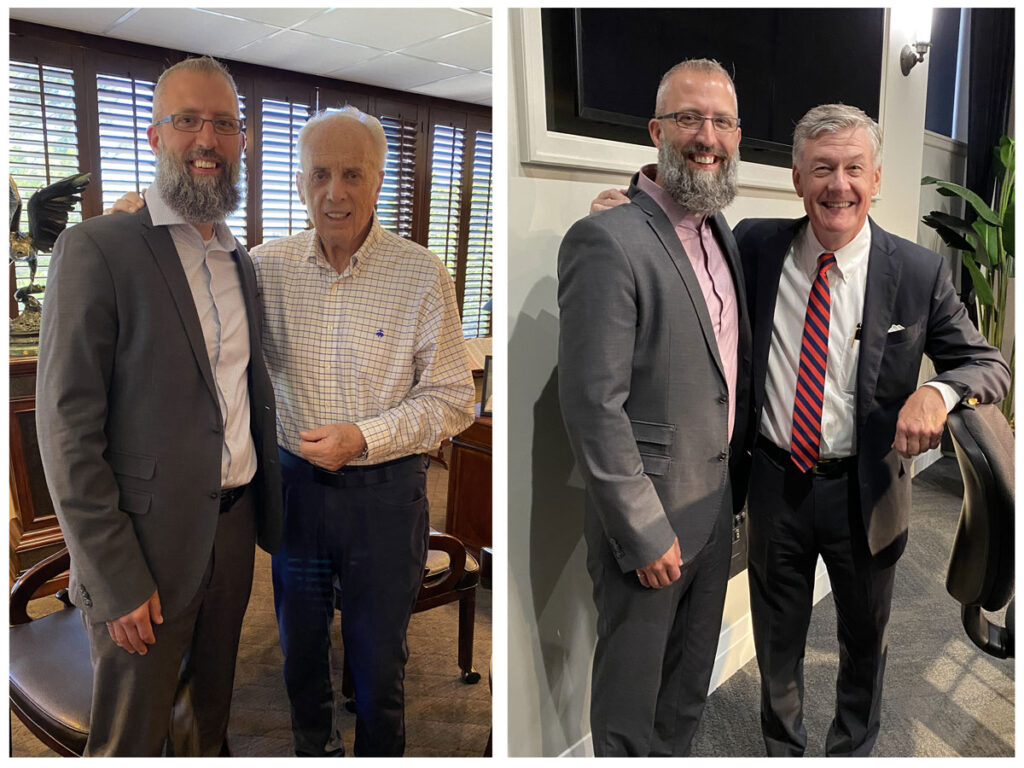
After a trial on September 15, 2021 where I took the stand to make my defense on two counts of violating the Chief Medical Officer’s COVID health orders, the written decision was given yesterday by the judge. In short, the judge found me not guilty.
Here is a legal summary of all tickets/charges so far for me and the church:
- 3 PHA violations for failing to wear a mask—all withdrawn.
- 2 PHA violations for exceeding capacity limit—both withdrawn.
- 2 PHA violations for failing to physical distance—went to trial, acquitted on both counts.
- 1 contempt of court charge—spent 3 days in jail, then withdrawn.
- 1 criminal charge for violating a court order—spent 18 days in jail, then withdrawn.
- 1 PHA violation against the church—waiting to schedule trial.
Some might wonder why so many charges were withdrawn by the crown prosecutor before going to trial. Our convictions are such that we would never make a plea deal. We were ready to make a trial defense for every charge. I’m convinced that the crown recognized the weakness of their case and that the health orders and court orders used to scare many into compliance were overly broad, hurried into use, and do not provide the legal right for the government to regulate the worship of the church with lockdown measures that have proved harmful and ineffective. The same resolve that was required during COVID lockdowns must continue in the court proceedings that follow.
While I have been clear about masks, distancing, and capacity limits, this last ruling was not a ruling on those issues per se. That is, the judge’s ruling was not on whether the government mandates were constitutional or not—we are still awaiting that decision in another case. Yesterday’s ruling (which you can read in its entirety here) was strictly on two counts of violating public health orders as it relates to physical or social distancing. The crown argued that it was my responsibility to enforce, compel, and encourage physical distancing as people came to gather for worship. The judge disagreed. He understood that I was only responsible for my own actions. In the evidence submitted by the crown (pictures of our church gathered to worship), I was behind the pulpit and distanced from the congregation! Based on this, the judge acquitted me. While this is a small victory, I understand this to be the special providence of God. In God’s plan it was this judge presiding over the matter who seemed to have no desire to continue the heavy handed use of the law to punish dissenting opinions.
As I reflect on recent events, I’m certainly pleased with the outcome yet realize there is work to be done. This work is not primarily political or legal—these are important but they are downstream from the real issue. The work to be done is theological. Our society with its laws, mandates, and opinions reflect a change of “god” with corresponding views of authority and humanity that will lead to dystopia unless there is repentance. No longer are we a nation built upon the supremacy of God and the rule of law, but we are seeking to do away with God and his law to enshrine the shifting and harmful opinions of sinful man and his selfish machinations. (Chemical castration and genital mutilation of young people today is one example of reaping the godless ideas that have been sown—man is attempting to create himself in his own image and likeness.) The need of the hour is the proclamation of the good news of the kingdom of God and for his kingdom to be manifest in our churches, households, and society.
Beyond the work that needs to be done in the midst of this spiritual, religious, and cultural battle, we must take time to rejoice and be thankful in our God. I thank God that the past few years has clarified the Lordship of Christ over every realm and person for countless individuals. I’m thankful that the gospel has reached new places and new heights. I thank God for those saved from eternal death, forgiven in Jesus, and now have the hope of eternal life. I thank God that the church was tried, sifted, and strengthened. I thank God for the growth in holiness, prayer, worship, obedience, and love in so many followers of Jesus. I thank God that he has been glorified and that his kingdom has advanced. He is our refuge and strength. He is the one who vindicates the oppressed and establishes them upon the rock. He is the one who lavishes his mercy and grace. May he be praised for the all that has transpired the past few years!
“Fret not yourself because of evildoers; be not envious of wrongdoers! For they will soon fade like the grass and wither like the green herb. Trust in the Lord, and do good; dwell in the land and befriend faithfulness. Delight yourself in the Lord, and he will give you the desires of your heart.
Commit your way to the Lord; trust in him, and he will act. He will bring forth your righteousness as the light, and your justice as the noonday.
Be still before the Lord and wait patiently for him; fret not yourself over the one who prospers in his way, over the man who carries out evil devices!
Refrain from anger, and forsake wrath! Fret not yourself; it tends only to evil. For the evildoers shall be cut off, but those who wait for the Lord shall inherit the land.
In just a little while, the wicked will be no more; though you look carefully at his place, he will not be there. But the meek shall inherit the land and delight themselves in abundant peace” (Psalm 37:1–11).









